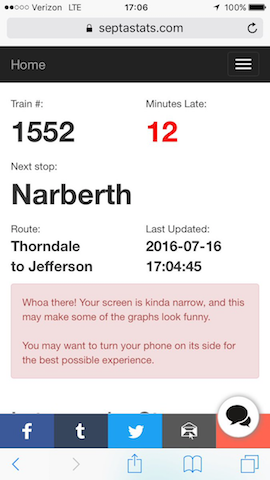We’re well past a month into the COVID-19 shutdown, and I noticed that fewer and fewer trains were running on Regional Rail each day. I knew that SEPTA had decreased their service due to less riders, but I wondered just how strict the service cuts were. I also wondered if more or perhaps less trains were running on time.
Fortunately, I have several years worth of train data due to running SeptaStats.com, so I could answer these questions myself!
I started off by firing up Splunk Lab then went for a walk while it took 15 minutes or so to load the data up. I came back, and decided to see where we were:
That’s well north of 60 million data points. While I could crunch that data as-is, it would take longer for me to run my subsequent queries as well as look for trends in the data. I ended up writing a couple of scripts to summarize that data on a daily basis, so that I can get a bucketed breakdown of late trains for the entire day. We’ll get back to that bucketing later, because I first want to talk about train volumes.
I figured that with the perceived dropoff in service, I could look at how many distinct trains (identified by train number) each day. Sure enough, there was a drop off in train service levels:
Things started to get serious the week of Monday, March 16th. In fact, that was the last day of “normal” service on Regional Rail. Starting on Tuesday the 17th, the number of trains per weekday went from nearly 500 to about 362, with the weekends unaffected.
Continue reading “Philadelphia Public Transit vs COVID-19”







